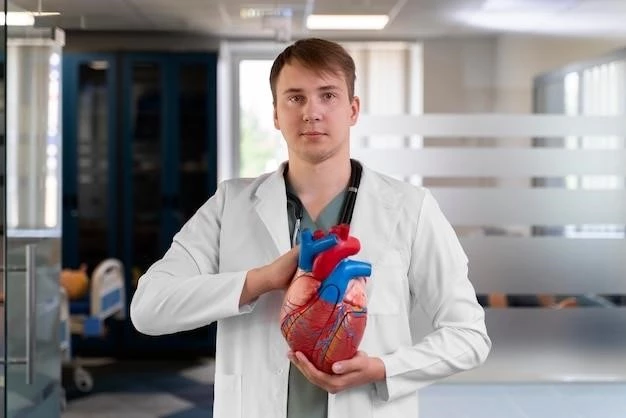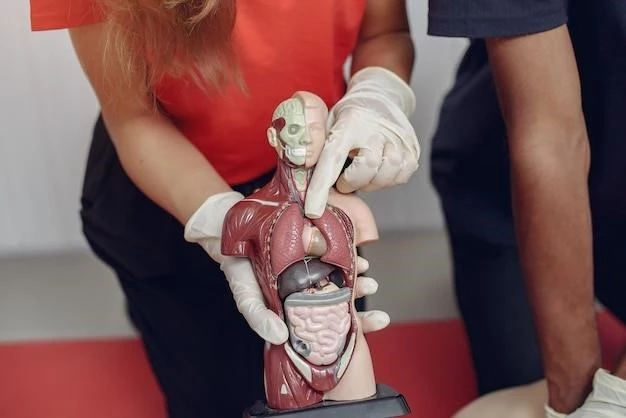Article Plan⁚ Disease ⎯ Sacral Meningocele Conotruncal Heart Defects
The unique combination of sacral meningocele and conotruncal malformations in this sibship suggests a new autosomal recessive condition․ It also emphasizes the heterogeneity of both the open neural tube defects and congenital heart defects․ This syndrome is characterized by the association of conotruncal heart defects, myelomeningocele, and craniofacial dysmorphism similar to that seen in monosomy 22q11․ Kousseff syndrome is caused by a chromosome 22q11 deletion and includes sacral meningomyelocele and conotruncal heart defects․
Introduction to Sacral Meningocele Conotruncal Heart Defects
The unique combination of sacral meningocele and conotruncal heart defects presents a challenging clinical scenario, often requiring multidisciplinary care․ Sacral meningoceles involve abnormalities in the lower spine, while conotruncal heart defects affect the outflow tract of the heart․ Understanding the complexities and potential genetic basis of this condition is crucial for effective management and counseling․
These conditions can have significant implications on the individual’s health and quality of life, warranting thorough evaluation and personalized treatment plans․ The association between neural tube defects and cardiac anomalies underscores the importance of comprehensive medical assessments to address all aspects of care․ Genetic factors play a key role in the development of these conditions, highlighting the need for genetic testing and counseling․
By exploring the unique features and challenges posed by sacral meningocele conotruncal heart defects, healthcare professionals can better support patients and families affected by this complex syndrome․ Stay informed about the latest advancements in research and treatment strategies to enhance the care provided to individuals with this rare condition․
Genetic Basis and Inheritance Patterns
The genetic basis of sacral meningocele conotruncal heart defects suggests a potential autosomal recessive condition, emphasizing the importance of understanding inheritance patterns․ With implications for family planning and genetic counseling, identifying the underlying genetic factors is crucial․
Research has highlighted the association between neural tube defects and cardiac anomalies, underscoring the need for comprehensive genetic testing to unravel the complexity of this syndrome․ By exploring the inheritance patterns, healthcare providers can offer personalized care and guidance to affected individuals and their families․
Examining the role of chromosome 22q11 deletions in Kousseff syndrome sheds light on the genetic underpinnings and variability of this condition․ Stay informed about the latest genetic research to better comprehend the hereditary aspects of sacral meningocele conotruncal heart defects and enhance patient care․
Clinical Presentation and Diagnosis
The clinical presentation of sacral meningocele conotruncal heart defects can vary, with individuals exhibiting a range of symptoms related to spinal and cardiac abnormalities․ Diagnosis often involves a comprehensive assessment, including imaging studies to evaluate the extent of the meningocele and echocardiograms to assess cardiac anomalies․
Individuals with this condition may present with features such as neural tube defects, conotruncal heart malformations, and craniofacial dysmorphism․ Early diagnosis is essential to initiate appropriate medical interventions and management strategies tailored to the individual’s needs․
Healthcare providers should be vigilant in recognizing the signs and symptoms associated with sacral meningocele conotruncal heart defects to facilitate timely diagnosis and intervention․ Collaborative care involving specialists from neurology, cardiology, and genetics is crucial to address the complex nature of this syndrome comprehensively․
Association with Chromosome 22q11 Deletion
Explore the association between sacral meningocele conotruncal heart defects and chromosome 22q11 deletion, which has been implicated in certain cases of this syndrome․ Understanding this genetic link can provide insights into the underlying pathogenesis and guide treatment strategies․
Recent studies have highlighted the role of chromosome 22q11 deletions in Kousseff syndrome٫ characterized by the association of conotruncal heart defects٫ myelomeningocele٫ and craniofacial dysmorphism․ Stay informed about genetic testing options to assess for chromosome 22q11 deletions in individuals with sacral meningocele conotruncal heart defects․
Healthcare providers should consider the implications of chromosome 22q11 deletions in the diagnosis and management of this condition․ By recognizing the genetic basis of sacral meningocele conotruncal heart defects, clinicians can offer more personalized care and genetic counseling to affected individuals and their families․
Unique Features of Kousseff Syndrome

Explore the distinct features of Kousseff syndrome, characterized by the association of conotruncal heart defects, myelomeningocele, and craniofacial dysmorphism․ With only a few reported cases, understanding the unique manifestations and genetic underpinnings of this syndrome is crucial for accurate diagnosis and management․
Individuals with Kousseff syndrome may present with a specific set of symptoms, including conotruncal heart defects and sacral meningocele․ Stay informed about the latest research and diagnostic approaches to recognize and address the complexities of Kousseff syndrome effectively․
Healthcare providers should be aware of the rare nature of Kousseff syndrome and its impact on patients’ health․ Collaborate with specialists in cardiology, neurology, and genetics to provide comprehensive care tailored to the specific needs of individuals with this syndrome․
Management and Treatment Approaches
When it comes to addressing sacral meningocele conotruncal heart defects, a multidisciplinary approach is key for comprehensive management․ Treatment strategies may involve a combination of surgical interventions to address the neural tube and heart abnormalities, along with ongoing monitoring and support for potential complications;
Individualized care plans tailored to the specific needs of the patient are essential to ensure optimal outcomes․ Collaboration among neurosurgeons, cardiologists, and genetic counselors is crucial in developing a holistic treatment approach․
Stay informed about advancements in medical technologies and therapeutic options for managing sacral meningocele conotruncal heart defects․ By staying proactive and engaged in the latest treatment modalities, healthcare providers can offer the best possible care to individuals affected by this complex syndrome․
Prognosis and Long-Term Outcomes
Understanding the prognosis and long-term outcomes of individuals with sacral meningocele conotruncal heart defects is crucial in providing appropriate care and support․ The prognosis for individuals with this rare syndrome can vary and is influenced by factors such as the extent of neural tube and cardiac anomalies;
Long-term outcomes may be influenced by the effectiveness of surgical interventions, ongoing medical management, and the presence of associated genetic factors․ Regular monitoring and follow-up evaluations are essential to track the progress and address any potential complications that may arise over time․
Healthcare providers should collaborate closely with patients and their families to establish a comprehensive care plan that considers the individual’s unique needs and optimizes long-term outcomes․ Stay informed about the latest research and advancements to continually improve the prognosis and quality of life for individuals living with sacral meningocele conotruncal heart defects․
Importance of Genetic Counseling
Genetic counseling plays a crucial role in the management of sacral meningocele conotruncal heart defects to provide valuable insight into hereditary aspects and potential risks for future generations․ Genetic counselors can help individuals and families understand the complex genetic basis of this syndrome and facilitate informed decision-making regarding family planning․
By offering guidance on genetic testing, inheritance patterns, and the likelihood of passing on the condition, genetic counselors empower individuals to make informed choices about their health and the health of their offspring․ Understanding the genetic implications can aid in early diagnosis, personalized treatment plans, and proactive management strategies․
Healthcare providers should encourage individuals affected by sacral meningocele conotruncal heart defects to seek genetic counseling to comprehensively address the genetic complexities associated with this rare syndrome․ By promoting genetic awareness and informed decision-making, genetic counseling can positively impact the long-term outcomes and quality of life for individuals and families dealing with this condition․
Research Studies and Case Reports
Research studies and case reports play a significant role in advancing our understanding of sacral meningocele conotruncal heart defects․ By examining reported cases and ongoing research, healthcare professionals can gain insights into the clinical manifestations, genetic factors, and potential treatment approaches for this complex syndrome․
Stay updated on the latest findings from research studies that investigate the genetic basis, inheritance patterns, and long-term outcomes associated with sacral meningocele conotruncal heart defects․ Case reports can provide valuable information on diagnostic challenges, management strategies, and unique features observed in individual patients․
Collaboration with researchers and clinicians involved in studying sacral meningocele conotruncal heart defects can enhance knowledge sharing and promote the development of effective interventions․ By staying informed about the latest research findings and case reports, healthcare providers can improve patient care and outcomes for individuals affected by this rare condition․
Relationship with Other Congenital Disorders
Understanding the relationship between sacral meningocele conotruncal heart defects and other congenital disorders is essential for comprehensive patient care․ The association of conotruncal heart defects with sacral meningoceles highlights the complex nature of these conditions and the potential for overlapping genetic factors․
Individuals with sacral meningocele conotruncal heart defects may also present with additional anomalies or syndromic features, necessitating thorough evaluation and specialized care․ Collaborating with healthcare providers familiar with related congenital disorders can help in navigating the complexities of diagnosis and management․
Stay informed about the interconnectedness of sacral meningocele conotruncal heart defects with other congenital disorders to ensure holistic and personalized treatment approaches for individuals with this unique syndrome․
Impact on Neurological Development
The presence of sacral meningocele conotruncal heart defects can have a profound impact on neurological development due to the complex interplay between spinal abnormalities and cardiac malformations․ Individuals with this syndrome may experience challenges related to motor function, sensory deficits, and neurodevelopmental delays․
Early identification and intervention are essential to address the potential neurological implications associated with sacral meningocele conotruncal heart defects․ Close monitoring by neurologists and developmental specialists can help track developmental progress and implement targeted interventions to support neurological growth․
Healthcare providers should prioritize comprehensive neurological assessments and tailored interventions to optimize the neurological development of individuals with sacral meningocele conotruncal heart defects․ Collaborating with experts in neurology and rehabilitation can help enhance overall neurological outcomes and improve the quality of life for affected individuals․
Support Resources for Patients and Families
Accessing support resources for individuals with sacral meningocele conotruncal heart defects and their families is essential for navigating the complexities of this rare syndrome․ Support groups, online forums, and patient advocacy organizations can offer valuable emotional support, information sharing, and connections to others facing similar challenges․
Seek out specialized healthcare providers, genetic counselors, and developmental specialists who are experienced in dealing with congenital anomalies to receive comprehensive care and guidance․ Educational materials, workshops, and community events can also provide valuable insights and assistance in managing the unique needs of individuals with this condition․
Remember, you are not alone on this journey․ By tapping into the available support resources and building a strong network of care providers and fellow families, you can navigate the challenges of sacral meningocele conotruncal heart defects with resilience and empowerment․
Conclusion and Future Directions

In conclusion, the intricate interplay between sacral meningocele and conotruncal heart defects underscores the complexity of this syndrome and highlights the importance of multidisciplinary care and genetic understanding․ It is crucial for healthcare providers to stay informed about the latest advancements in research, treatment modalities, and genetic counseling to optimize outcomes for individuals affected by this rare condition․
Looking ahead, future directions in the field should focus on further exploring the genetic basis, inheritance patterns, and long-term outcomes of sacral meningocele conotruncal heart defects․ Continued research, collaboration, and patient advocacy efforts will be instrumental in enhancing diagnostic accuracy, treatment efficacy, and support resources for patients and families dealing with this challenging syndrome․
By fostering a holistic approach to care, leveraging genetic insights, and staying vigilant about emerging findings, the medical community can strive towards improving the quality of life and prognosis for individuals living with sacral meningocele conotruncal heart defects․
